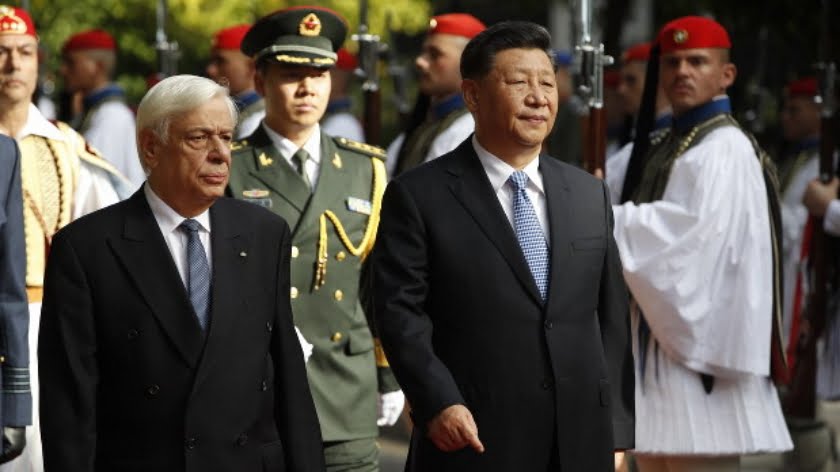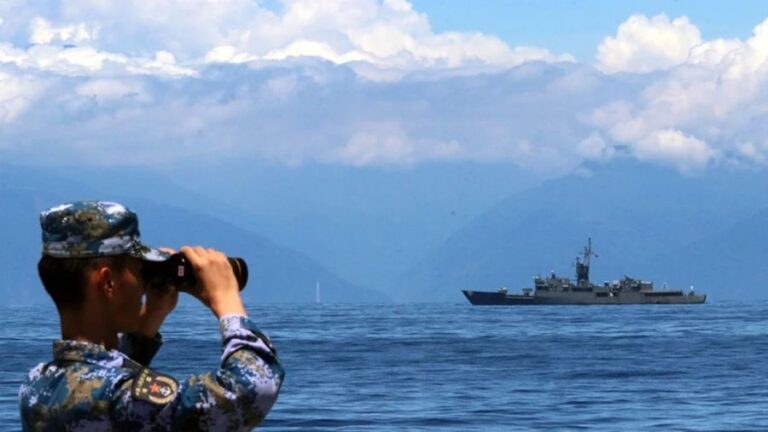Greece as the Centrepiece of China’s BRI in the Eastern Mediterranean
A 2018 Pew Survey found that 89% of Greeks found their culture to be superior to others, by far the highest amount of people in Europe where it reached as low as 26% in Sweden, 23% in Estonia and Belgium, and 20% in Spain. The Greeks are by far the oldest civilization on the European continent, giving them the moniker as the founders of Western civilization, and a slight arrogance at times over other Europeans.
However, it was this very ancient civilizational pride that Chinese President Xi Jinping capitalized on during his extremely productive visit to Greece this week where 16 agreements were made that firmly puts the Mediterranean country into the Belt and Road Initiative (BRI).
Xi’s final day in Greece on Tuesday was spent at the Acropolis Museum where the Greek President Prokopis Pavlopoulos asked whether Greece can rely on China to help pressure the British Museum in London to return the Parthenon Marbles they hold. Not only did Xi enthusiastically pledge that China would help Greece’s position against the United Kingdom, but he also empathized that China too has many of its ancient treasures outside of its borders against its will.
As Greece occupies a strategic space in the Eastern Mediterranean and has one of the largest merchant navies in the world, it was always going to be in the interests of Beijing to maintain close ties with Athens, even with issues over ancient artefacts. Over two thousand years of contact between the Greeks and Chinese, and the famous Silk Road connecting Xi’an with Constantinople, has ensured there are long and deep connections between the two countries today.
During the visit, 16 agreements were signed. Many of these are not so significant, but there were certainly some important ones.
The Port of Pireus
Greek Prime Minister Kyriakos Mitsotakis told Xi on Monday during their visit to Piraeus Port that Greece has come to a deep understanding on the meaning of “friends” through the cooperation with China at the port. China Ocean Shipping Company (COSCO) acquired a majority stake in the port in 2016, creating direct and indirect employment for over 10,000 locals, and making it the largest port in the Mediterranean region and one of the fastest growing container terminals in the world.
This port has been a keynote feature for the BRI in Europe and Xi’s visit to Athens ensures Greece’s goal of turning Piraeus Port into the biggest commercial harbor in Europe can become a reality. Piraeus Port is strategically located in the Eastern Mediterranean, putting it at the crossroads of Europe, Asia and Africa, which will be of significant interest to China as it continues to channel goods to the region. Effectively, the upgraded port helps Chinese products enter European markets more easily and at cheaper prices
“We want to strengthen Piraeus’ transhipment role and further boost the throughput capacity of China’s fast sea-land link with Europe,” Xi said after meeting Mitsotakis, recognizing that access in the Mediterranean is best done through Greece because of its thousands of years of seafaring history, its strategic location and its large mercantile navy.
Chinese investment banks to open in Greece
Directly connected to the investment of Piraeus Port, lenders’ Bank of China and the Industrial and Commercial Bank of China (ICBC) will open branches in Athens to not only develop the maritime industry further, but also at a time when Chinese investors have become increasingly interested in Greek real estate.
The Chinese banks will not only create business opportunities in Greece and help develop the maritime industry, but it will also help finance renewable energy projects. This comes as for the past 10 years Western countries have done little to alleviate Greece’s economic crisis. It is expected that the Bank of China, the world’s fourth largest lender, and ICBC will invest in renewable energy to help develop Greece’s clean energy infrastructure and bring cheaper energy prices to Greeks.
Energy
Although Greece opened its domestic projects, such as wind farms, to Chinese investors, China has expressed no immediate interest in Greece’s heavily indebted Public Power Corporation despite speculation that the Asian country is interested in investing in Greece’s electricity distribution networks.
However, the State Grid Corporation of China, the world’s biggest utility, agreed to invest in a new electricity interconnector between mainland Greece and the island of Crete. It is hoped that Crete can become an even bigger solar energy hub as Greece aims to stop using coal energy by 2028.
Conclusion
By taking a soft power approach with Athens and not embroiling itself in regional issues, China has every advantage to deepen the BRI in the Balkans, Middle East, North Africa and Mediterranean Europe via Greece. There is little doubt that China sees Greece, specifically through the 2,500-year-old Piraeus Port, as a hub for its BRI expansion in the region.
The agreements between Greece and China come at a time when only in September the Mediterranean country allowed the U.S. to open three new military bases and Greek Foreign Minister Nikos Dendias met with his Russian counterpart Sergei Lavrov in Moscow last week where “a new chapter” in Greek-Russian relations was announced. It is beginning to appear that perhaps Athens is not so much the U.S.-puppet as first suspected, but perhaps is masterfully balancing its relations with Washington, Moscow and Beijing in the Age of Multipolarity as its highly successful recent meetings with the Great Powers demonstrates.
At the minimum, whether Greece successfully balances its relations with the Great Powers or not, the Great Powers have certainly identified the importance of the Aegean country in the 21st Century and are all aiming to gain a foothold in it. It remains to be seen where Greece will show allegiance when push comes to shove, but it is likely to be a balance on its economic reliance on China against its military reliance on the U.S. With China having a strong foothold in the Eastern Mediterranean, it remains to be seen whether the Asian country will want to expand its military presence into the region too.
By Paul Antonopoulos
Source: InfoBrics







